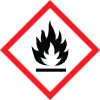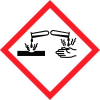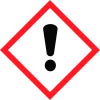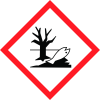3M Spray 74 Foam Adhesive
3m company
Revision date : 2021-07-22




Note: Ingredients listed on restricted chemical lists
EC/CAS
203-806-2/110-82-7
Name of the chemical
Cyclohexane
Concentration
1-5
General Information
Revision date
2021-07-22
Product name
3M Spray 74 Foam Adhesive
CAS No.
110-82-7
Icons in SDS
Company Information
Company name
3m company
E-mail address of the competent person responsible for the Safety Data Sheet
tox.uk@mmm.com
GHS Information
Signal word
Danger
Hazard Codes
Hazard statements (CLP)
H222, H229, H318, H336, H411
Hazard statements
Code
Statements
H222
Extremely flammable aerosol
H229
Pressurized container: may burst if heated
H318
Causes serious eye damage
H336
May cause drowsiness or dizziness
H411
Toxic to aquatic life with long lasting effects
Precautionary statements
Code
Statements
P210
Keep away from heat, hot surface, sparks, open flames and other ignition sources. - No smoking.
P211
Do not spray on an open flame or other ignition source.
P251
Do not pierce or burn, even after use.
P305+P351+P338
IF IN EYES: Rinse cautiously with water for several minutes. Remove contact lenses if present and easy to do - continue rinsing.
P310
Immediately call a POISON CENTER or doctor/physician.
P410+P412
Protect from sunlight. Do not expose to temperatures exceeding 50 °C/122°F.
P501
Dispose of contents/container to ...
EUH-statements
Code
Statements
EUH066
Repeated exposure may cause skin dryness or cracking
Section 2
2.1 Classification of the substance or mixture
CLP REGULATION (EC) No 1272/2008 The health and environmental classifications of this material have been derived using the calculation method, except in cases where test data are available or the physical form impacts classification. Classification(s) based on test data or physical form are noted below, if applicable. The aspiration hazard classification is not required because the product is an aerosol. This material has been tested for eye damage/irritation and the test results are reflected in the assigned classification. This material has been tested for skin corrosion/irritation and the test results do not meet the criteria for classification. Aerosol, Category 1 - Aerosol 1; H222, H229 Serious Eye Damage/Eye Irritation, Category 1 - Eye Dam. 1; H318 Specific Target Organ Toxicity-Single Exposure, Category 3 - STOT SE 3; H336 Hazardous to the Aquatic Environment (Chronic), Category 2 - Aquatic Chronic 2; H411 For full text of H phrases, see Section 16.
2.2 Label elements
CLP REGULATION (EC) No 1272/2008
Hazard pictograms
GHS02 (Flame) |GHS05 (Corrosion) |GHS07 (Exclamation mark) |GHS09 (Environment) | Ingredients: Ingredient CAS Nbr EC No. % by Wt acetone 67-64-1 200-662-2 10 - 20 pentane 109-66-0 203-692-4 5 - 10
Hazard statements
H222 Extremely flammable aerosol. H229 Pressurised container. may burst if heated. H318 Causes serious eye damage. H336 May cause drowsiness or dizziness. H411 Toxic to aquatic life with long lasting effects.
Prevention
P210 Keep away from heat, hot surfaces, sparks, open flames and other ignition sources. No smoking. P211 Do not spray on an open flame or other ignition source. P251 Do not pierce or burn, even after use.
Response
P305 + P351 + P338 IF IN EYES: Rinse cautiously with water for several minutes. Remove contact lenses, if present and easy to do. Continue rinsing. P310 Immediately call a POISON CENTRE or doctor/physician.
Storage
P410 + P412 Protect from sunlight. Do not expose to temperatures exceeding 50C/122F.
Disposal
P501 Dispose of contents/container in accordance with applicable local/regional/national/international regulations.
Supplemental label elements
EUH066 Repeated exposure may cause skin dryness or cracking. 13% of the mixture consists of components of unknown acute oral toxicity. Notes on labelling Test data for a similar material indicate that this material meets the requirements for Eye Irritation Category 1 and does not meet the requirements for Eye Irritation Category 2A. No single ingredient can be attributed to the Eye Irritation Category 1 classification and thus no ingredients are disclosed (meets CLP requirements).
2.3 Other hazards
None known.

